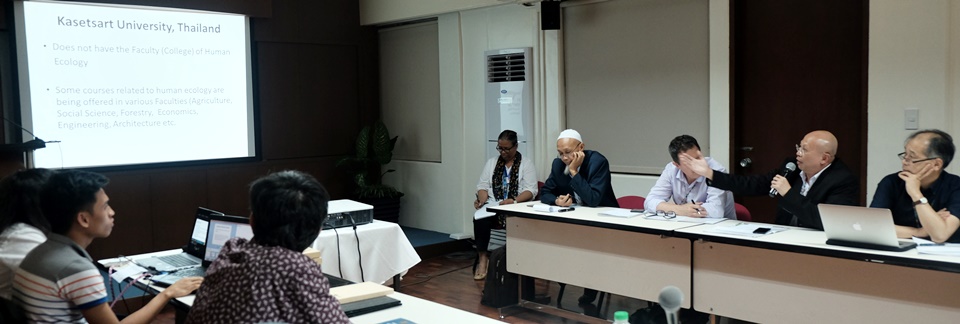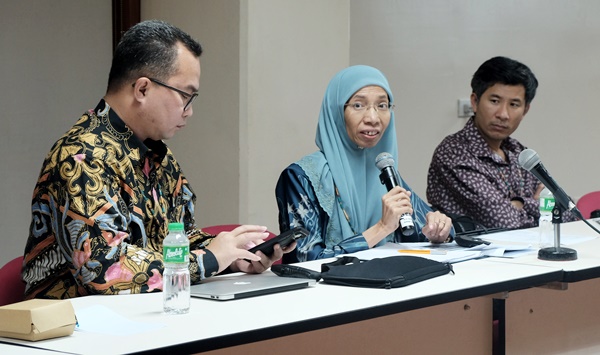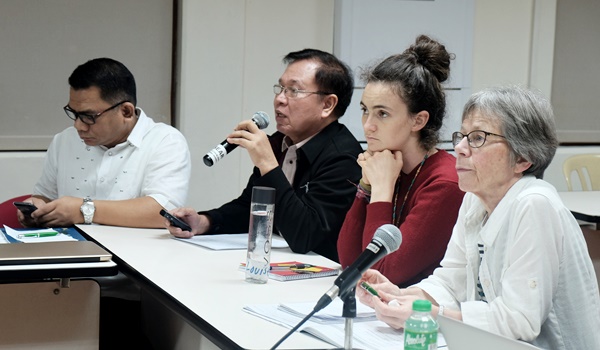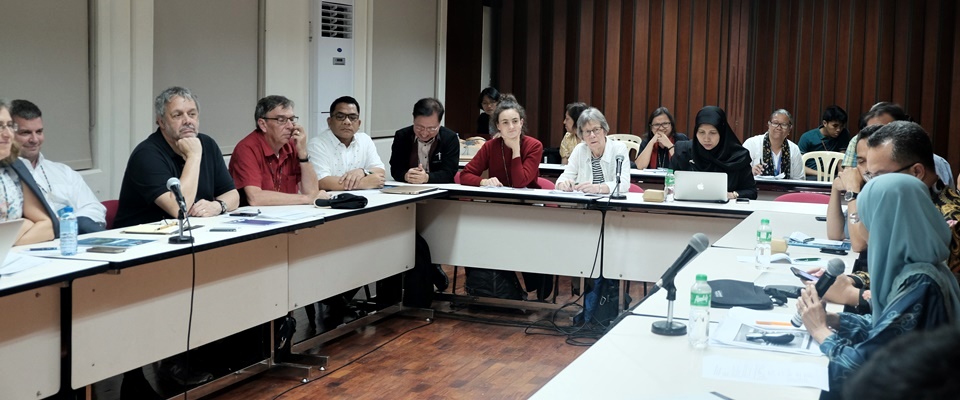The session was meant to promote Human Ecology as a field of study that would help address the problems or needs faced by the region, such as on food security and nutrition, natural resource degradation, and climate change. Key officials from members of the Southeast Asian University Consortium for Graduate Education in Agriculture and Natural Resources (UC) that have existing colleges or faculty in human ecology presented their academic programs in human ecology education, research, and extension. The presenters were Dr. Husniyah Abdul Rahim (Universiti Putra Malaysia), Dr. Arif Satria (Institut Pertanian Bogor), and Dr. Raden Piadozo (UPLB).
On the other hand, representatives from other UC members discussed the relevance of instituting a program in Human Ecology in their institutions—they were Dr. Buncha Chinnasri (Kasetsart University), Dr. Dyah Hizbaron (Universitas Gadjah Mada), and Dr. Bagyo Yanuwiadi (Universitas Brawijaya).

Dr. Jose V. Camacho, Jr. of the UPLB Graduate School and Dr. Robert Dyball of the Australian National University discussed a number of strategies to promote Human Ecology in the region, one of which is the strengthening of networks among universities that offer and may potentially offer the program. More experts from Australia, Brazil, Japan, Portugal, the USA, and Vietnam also shared their views on the promotion of Human Ecology.
The session was partly funded by the Food Security Center (FSC) based at the University of Hohenheim in Stuttgart, Germany. SEARCA is a strategic partner of FSC, one of five Excellence Center for Development Cooperation (EXCEED) funded by the Federal Ministry of Economic Cooperation and Development or BMZ of Germany, through the German Academic Exchange Service or DAAD.


